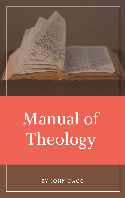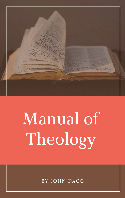Ads
Is Infant Baptism the teaching of the Bible? I examine the teachings of the Bible and the logical outworking of Scripture in defense and attacking infant baptism, showing the Bible does not teach it.
Contents
Important Issues
There are some pertinent issues within the arguments pro and con for infant baptism. I will review and discuss these first.
Scripture speaks of the baptism of whole houses
While those who teach the baptism of infants (all versions of Catholicism, Eastern Orthodox, Anglican, and Presbyterian) point to these verses in defense of their belief and practice, the question revolves on whether those particular families included under age children. There is no specific evidence that babies were in these families. The argument is supported by these people even though there is no hard and firm evidence that infants were in these households. If the youngest member of these families were 20 years old, then exactly what does an entire family coming to the Lord because the mother and/or father was saved mean? Does the salvation of a father mean his brothers, cousins, mother and father, grand mother and grand father all are saved without them knowing Christ or having received the gospel? The answer is very clear and obvious.
On another angle, it would be supposed that “the whole household” would be those adults in the household. Is not salvation a religious BELIEF after all? So why would infants and even more mature children (6 through 18 years old) that cannot understand these concepts, be included as a matter of fact? They should be excluded as a matter of fact. In the Jewish communities children were considered as adults at 13 years of age, and this is really when today we consider the younger generation as being able to grasp religious concepts well.
Even though a single member a large family accepts Christ, that person’s relation with the Savior and testimony and witnessing to the rest of his or her family should lead the majority of those people to also follow the Savior. The other members of this Christian’s family will most probably come to know the Savior with time through that Christian. But to guarantee the salvation of everybody in the household without them individually having to engage the gospel on a personal and individual level, no this is not the teaching of Scripture.
Scripture teaches us that every saved person must repent, belief, and accept Jesus is their Savior
What the Scriptures teach us is that each and every person must have a personal and individual experience with Jesus. Jesus is the only way, the only door, the only mediator to be saved and go to heaven. So how can anybody (child, infant, or adult) get to heaven through “another way”? All of the witnessing points denying salvation through good works, through elitism (being a Jew for example, a privileged class) or any other way apply here. Because your father Abraham had a personal relationship with God, does not mean you automatically are saved. You must go through the process personally yourself. Nobody is saved and goes to heaven because somebody else had that relationship with Jesus.
At the same time, every Christian lives a vibrant Christian life, and this sheds light and hope for all around them, so it should be natural, logical and common that the family of a Christian also comes to Christ.

Dagg Manual of Theology is a theology work in 2 volumes by J.L. Dagg a Reformed Southern Baptist. It is an extensive, very ample presentation of doctrines.
This is an extensive Bible Systematic Theology (Bible Doctrines book) from a conservative point of view.
Read/Download: now with pdf download link. 50,000 views on this page with download link







